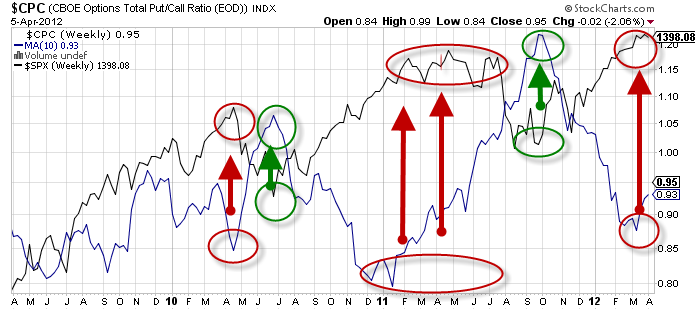When it comes to successful investing, the field of behavioral finance has shown that sometimes the worst enemy dwells in each of us.
Human evolution has wired our brains with certain instincts that, if left unchecked, can lead to big investing mistakes, according to psychologists and behavioral finance specialists.

In other words, those flight-or-flight responses that served our ancestors so well on the savanna may actually sabotage our investing.
Here are 5 of the most common errors that investors make, and some tips on how to avoid them:
1) Spinning your wheels
Individual investors sometimes fall into the conceptual fallacy that winning in the stock market means out-hustling the next guy, acting on every scrap of new information and nailing new profit opportunities as they emerge.
Trouble is, unless you have the processing power of high-speed server networks used by high frequency trading shops, this strategy is likely to fail for most investors. Sometimes, the best investing is boring.
And timing the market is very tough, even for the pros. Only 22% of financial advisers tracked for a decade ending 2012 outperformed the Wilshire index, according to one study.
Better to dump the race metaphor and think of investing as a long-term endeavor. Buying a holding a diversified portfolio with a mix of passive and active strategies can be a better strategy for many. Dollar cost averaging is also a good idea to ride out the ebbs of flows of the market.
2) Being inflexible
Investors have an understandable tendency to stick with the same methodology and assumptions that worked in the past. This is called anchoring and can cause trouble when market or industry conditions change.

Economies and markets are fluid and not all investments and asset classes behave in the same way.
One way to counter anchoring is to continually retest assumptions and factor in new developments. Do the reasons you initially bought a particular company’s stock still hold up? Are they even relevant anymore if a new competitor or technology has disrupted the industry?
3) Reading too much into the past
Yes, the past can offer important clues about the future. And for better or worse, the past is the only thing we have to go on, unless you have a crystal ball. But hindsight is rarely foresight.
Our human brains evolved to look for patterns in our environment. However, this trait sometimes makes us too optimistic and overconfident in our certainty about what’s going to happen the future.
In practice, this can lead investors to make a common blunder and place too much faith that past returns will carry on into the feature. Believing too eagerly that a hot mutual fund manager or trading strategy will continue to deliver every year is usually a mistake.
That’s why just about every bit of financial marketing literature will have the following disclaimer: Past performance does not guarantee future results. It’s there for a reason, folks.
4) Being too afraid to lose
Behavior finance experts and psychologists have long noticed the human tendency to avoid losses in the most irrational ways. In fact, we feel the pain of loss more keenly that we enjoy winning. That’s the essence of loss aversion.

In the financial context, this can play out when an investor sticks with a losing stock, hoping on very thin evidence or none at all that the investment will eventually break even. Sticking with the status quo is less upsetting than actually taking action and realizing a loss.
Avoiding this trap takes the recognition (and a little humility) that losses are a natural part of the investing game. In fact, they are inevitable. The challenge is to limit losses and by taking cool and dispassionate approach to one’s portfolio.
5) Following the herd
Even the smartest investors can sometimes fall prey to human instinct to imitate group behavior. Herding has been behind every great speculative bubble from Dutch tulips to the U.S. housing boom and bust.
Following the crowd is a real problem in investing. It’s easy to assume the group knows something you don’t, and step in line.

If everyone is screaming buy social media stocks and they’re soaring, it’s tougher to resist the urge to join in the fun, especially when your neighbor is getting rich.
Assume the crowd may be wrong. Break down the assumptions behind the conventional wisdom and see if they stand scrutiny.
Being willing to sometimes zig when everyone else is zagging is the hallmark of the intelligent investor.
Of course, just like in life, mistakes will happen in investing. The perfect is the enemy of the good, as the saying goes.
Still, being aware of your predispositions as an investor might just help you sidestep a big pitfall that could postpone reaching your financial goals by years.
Continue learning: The top investing errors of millionaires
—



